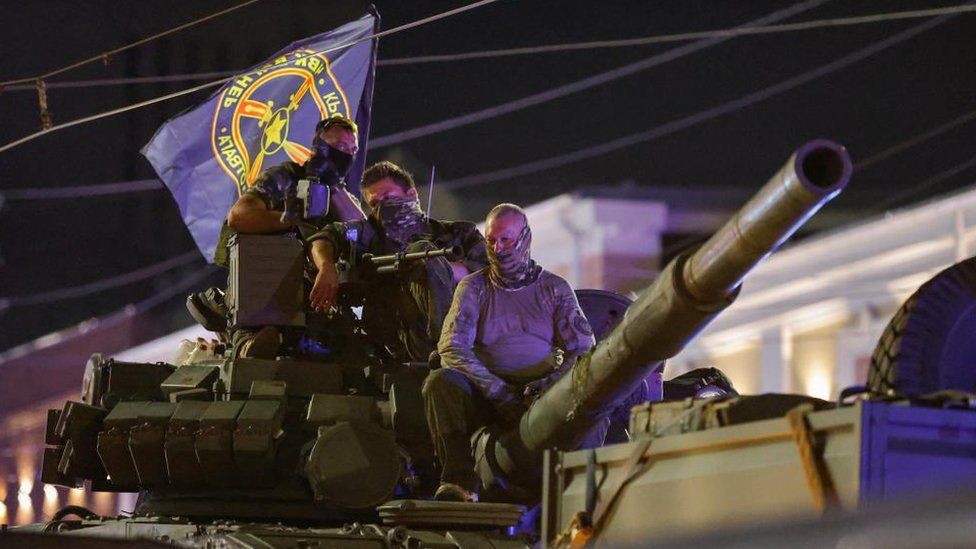According to Russian authorities, the Wagner mercenary group will be disarmed on Saturday but will not face charges for its brief uprising.
The group is getting ready to give its heavy weapons and equipment to the Russian army, according to the defence ministry.
According to the security forces, criminal charges against those who took part in the mutiny have also been dropped.
After the Wagner Revolt shook Russia, it occurs.
Yevgeny Prigozhin, the leader of the Wagner mercenary group, led his troops to seize Rostov-on-Don in southern Russia on Saturday. They then marched on Moscow, shooting down two Russian military helicopters and a plane en route.
After a deal was reached with the assistance of Belarusian president Alexander Lukashenko, their mutiny was eventually put an end. Prigozhin is expected to travel to Belarus as per the agreement.
On Tuesday morning, a private aircraft connected to Prigozhin touched down in Minsk. His presence on board is still unknown, and Kremlin spokesman Dmitry Peskov claimed to be unaware of Prigozhin's whereabouts.
The Wagner fighters were charged with armed insurrection, but the FSB security forces also declared that the case against them had been dropped because the mutinous individuals had stopped short of actually committing a crime.
Russian President Vladimir Putin stated that the rebels' fighters had three options: join the regular army, return home, or go to Belarus. He also stated that the rebels' fighters were primarily "patriots" who had been duped into a criminal enterprise.
The most recent announcements followed a vehement speech by President Putin on Monday evening, in which he charged that the leaders of the mutiny desired "to see Russia choked in bloody strife.".
On Tuesday, Mr. Putin addressed Russian troops in Moscow, telling them they had avoided a "civil war," and he observed a moment of silence in memory of the victims.
Even though crowds applauded and clapped as Wagner troops left Rostov-on-Don, he insisted that they never had the army's or the people's support.
The treatment of the mercenaries contrasts sharply with that of opposition politicians and activists, many of whom are currently imprisoned for nothing more than speaking out against the conflict in Ukraine.
For instance, treason-related prison time for opposition activist Vladimir Kara-Murza is 25 years.
The armed men who took part in the uprising, as well as Wagner chief Prigozhin, appear to be getting off easy.
Asserting that the uprising was not intended to be a challenge to Mr. Putin's leadership, Prigozhin has defended his actions.
Instead, he described it as an attempt to prevent the Russian army from absorbing his mercenary group and to highlight the shortcomings of the nation's military leadership.







